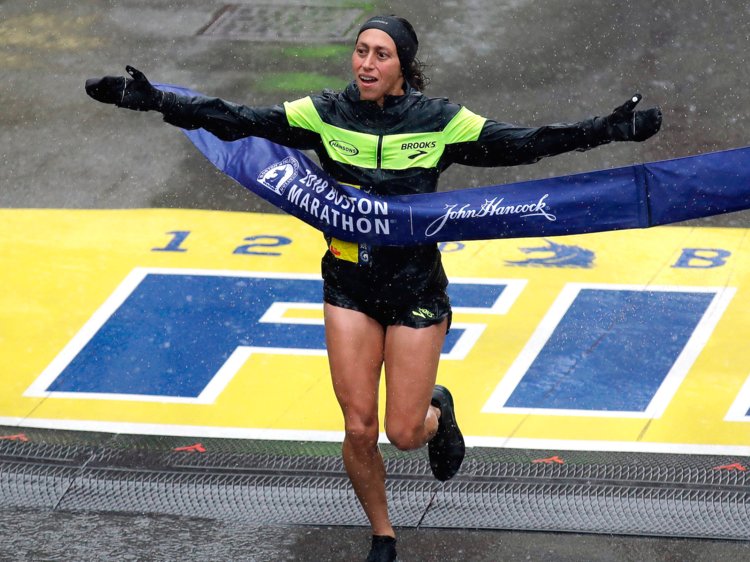by The Cowl Editor on April 19, 2018
Opinion

Technology Allows Socialization
Walking around campus between classes, you can often see a sea of students, heads down, staring at the lighted screens of their smartphones. Images like this are often used in newspapers and magazines to bemoan the disconnectedness of life in the Internet age. Writers often lament the way that young people are constantly on their phones instead of speaking to the people around them.
But what you cannot see when you look at this scene is all of the socializing that people are actually doing through technology.
The world has never been more open or accessible than it is right now. It can be just as easy to talk to a person halfway across the globe as it is to talk to somebody in the building next to you. As someone who went abroad and made friends in different countries, being able to have a normal conversation on an instant messaging platform instead of waiting weeks and weeks to exchange physical letters is an amazing thing.
It is true that there definitely are ways to mindlessly waste time on your phone, but there were plenty of ways to do that before the advent of technology as well.
While that person staring at their phone or computer screen might not be talking to the stranger sitting next to them, they could be engaged in just as meaningful a conversation with someone on the other side of that screen.
-Taylor Godfrey ’19
Bathroom Buddy Storms Boston Marathon
While spectators and runners alike were taken aback by the horrendous weather conditions of this Monday’s 122nd running of the Boston Marathon, what was even more surprising was the sportsmanship and teamwork displayed by one elite American runner.
Over an hour into the race, 34-year- old Desiree Linden made the surprising decision to wait and be the essential bathroom buddy to American teammate Shalane Flanagan, after Flanagan abruptly stopped to use a port-a-potty.
While the two runners had been seen communicating throughout the early miles of the race, this bold choice to stop running and join her teammate embodied the kind of sportsmanship and teamwork that typifies the spirit of the Boston Marathon. Even though Linden had told news reporters she chose to wait, believing she too would soon fall back in the race, she provided invaluable support to Flanagan, helping her catch up to the lead pack.
The support and dedication Linden demonstrated to her teammate and to the sport of running ultimately allowed her to push forward in the race, becoming the first American woman in 33 years to win the marathon.
The magnitude of this kind of feat should not be understated. With 25 of the leading elite male and female runners not able to finish this year’s race, Linden sustained extreme mental and physical toughness in the face of unpredictable conditions throughout the 26.2 mile course from Hopkinton to Boston. Yet beyond this toughness, Linden’s choice to fulfill the role of bathroom buddy to Flanagan exemplified the importance of teamwork and solidarity that lies at the heart of the Boston Marathon.
-Sarah Kelley ’18
Teach-In: Great Event, Terrible Name
Glancing at the rows of white-clothed tables in ’64 Hall, students were noticeably absent from the “Teach-in” on April 9. Aiming for a young crowd filled with open minds and differing perspectives, the organizers instead received scores of middle-aged faculty, all agreeing and nodding their heads to one platitude after another.
If event organizers want a serious discussion infused with a true diversity of opinions, the event’s name needs to change. Not only does the name “Teach-in” confuse what the event actually entails, the word “teach” frightens those skeptical that the event is truly a discussion. Billed as a true dialogue, perhaps more than a spattering of perspectives will enlighten discussion, allowing a fundamentally good idea to reach its full potential.
Knowing nothing besides the name of the event, I had no idea what to expect filing into ’64 Hall. Fixating on the word “teach,” I assumed an hour of lectures lay in front of me, with the thought never crossing my mind that I would have to say a word. Yet the actual event format was the total opposite of what the poor marketing implies. It truly was a free-wielding discussion, serving as a venue for people to speak their minds and have assumptions challenged. While the largely uniform audience suffered from monotony, the potential exists! Why not bill the event as what it is: a discussion?
Similarly, if the goal of the event is to welcome new voices into a cloistered discussion, selling it as a “teaching” event deters those skeptical of social justice. In fact, it plays into the opposition’s fears, as paranoia distorts the word “teach” into “indoctrinate.” Cognizant of skepticism across the political spectrum, event organizers should assuage these fears, not pour gasoline on the fire.
-Nicholas Moran ’19